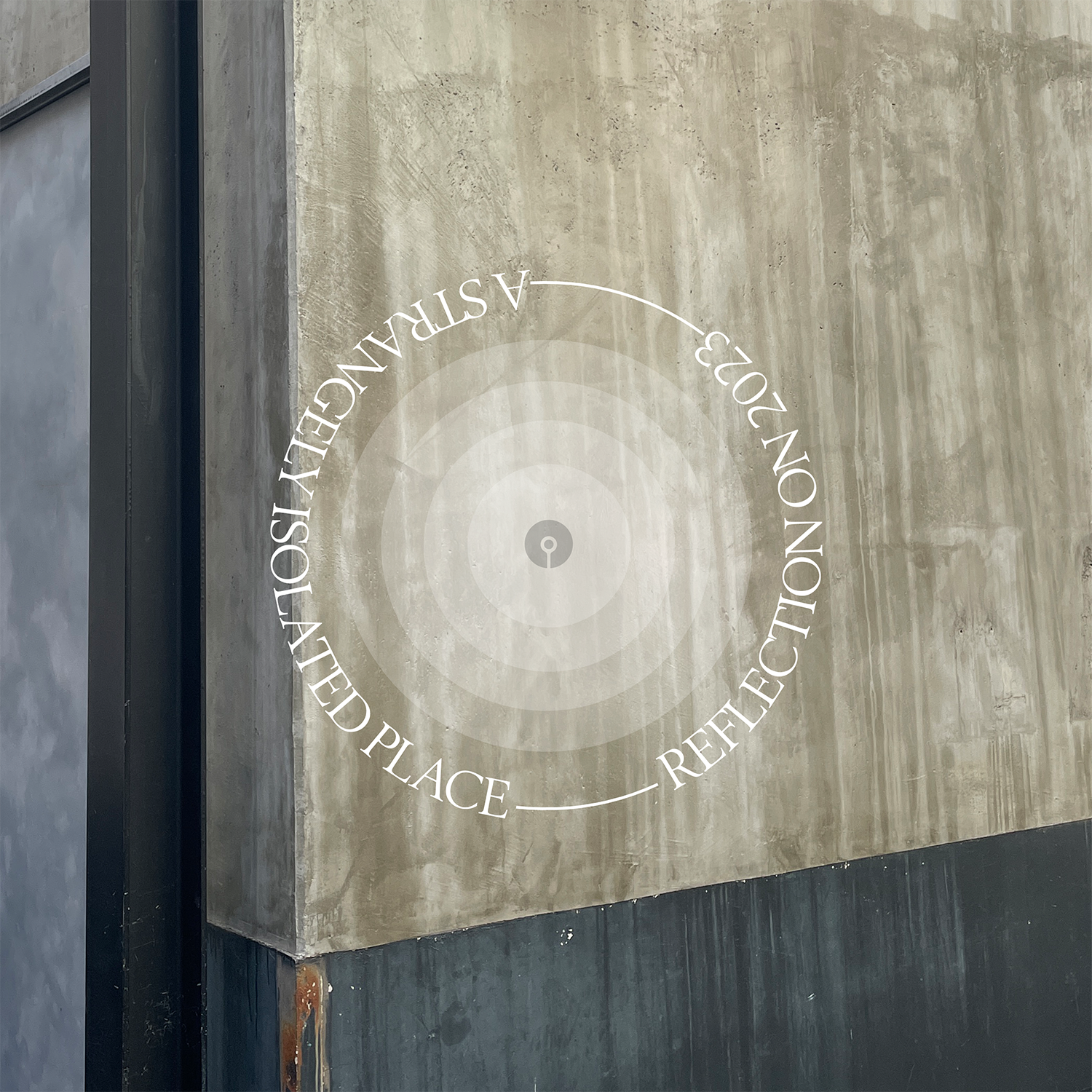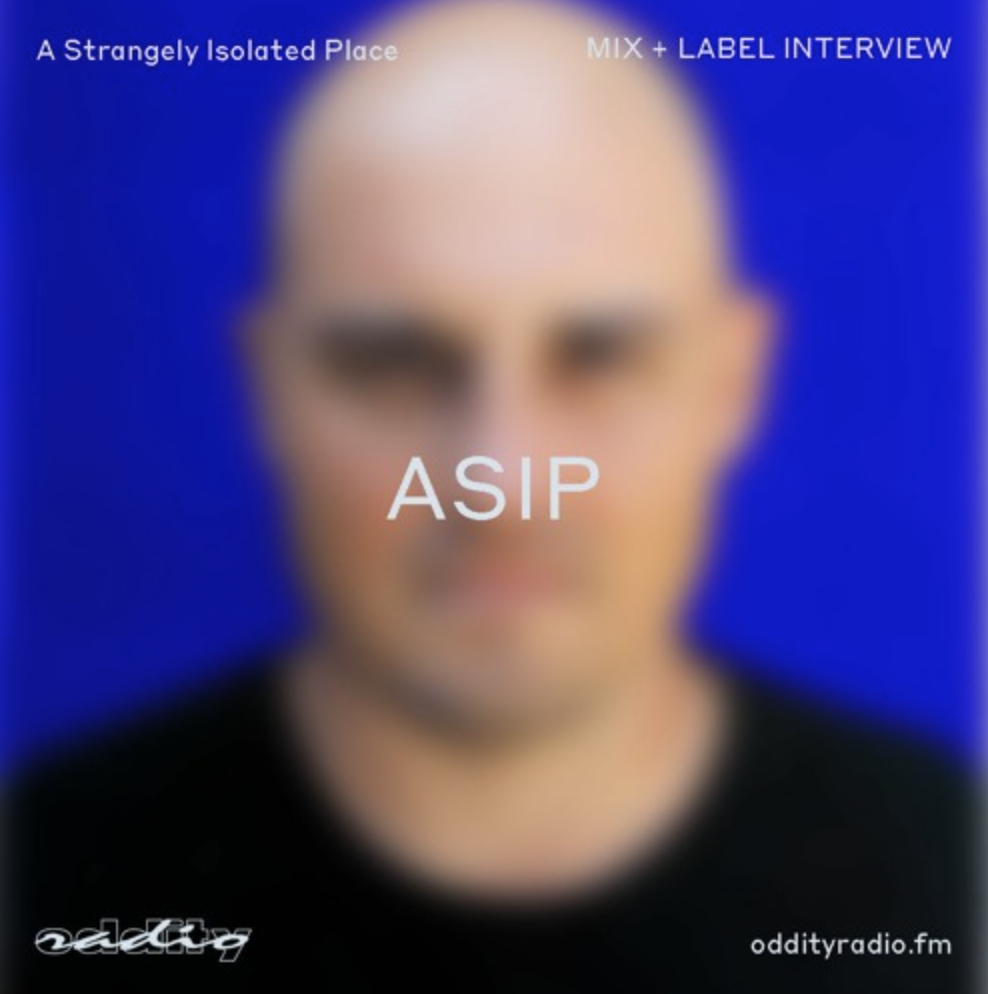Over the past ten-or-so years Steve Moore has increasingly impressed circles outside of his association with prog-rock band Zombi. In fact, I’m probably one of the very few people that discovered Steve without knowledge of his association with one of America’s most revered bands, which adds further intrigue to his euphoric synthesizer work under his own name. I think I’ve included one of his tracks in 90% of the mixes I’ve put together (on hindsight) but that speaks to how perfectly apt I find his music in setting moods, places and spaces. Along with this superb new isolatedmix to follow below, I had the chance to send a few questions Steve Moore’s way…
My first introduction to Steve’s solo work was his 2012 release ‘Light Echoes’, quickly followed by picking up ‘Brainstorm’- a split 12” with Majeure, (found in Tokyo’s Big Love Record Store by memory). Between both of these albums I caught a glimpse of the sublime ambient-leaning synthesizer work and the more colorful and energetic influences of the 80’s.
“I’ve been writing and recording music on my own since the early 90’s. Back then I had a Fostex 4 track cassette recorder and an Ensoniq VFX-SD. I’d share some of this music with friends but mostly I was just doing it for fun and practice. Zombi gave me the confidence and the connections to release my music”
It’s easy to start making associations to some of the early synthesizer pioneers with Steve’s work you hear today, especially on records like 2010’s Primitive Neural Pathways, which I managed to pick up a copy of just last week. It’s like a modern-day polished Jean-Michel Jarre record, pressed on a neon-Pink slab of vinyl (Pink must be a favorite color as his new one is also available in Pink)
I love those first few Jarre records so much, with Primitive Neural Pathways I definitely wanted to write something in that style. But that’s how I used to think when writing, in terms of who I wanted to reference and what time period, etc. Now I’m more interested in trying to do something new or different. I’m more into experimenting.
Experimentation is definitely apparent in Steve’s new album for Temporary Residence. With Beloved Exile, Moore states his goal was to “make an album of songs that featured instruments other than synthesizers - and instrumentalists other than myself. I wanted to create situations in which I thought Emel’s voice and Mary’s harp would sound interesting”.
Mary Lattimore (Ghostly International) features prominently and after several listens of the album in full, her grace is felt in such a natural and organic way it’s hard to believe a synthesizer and harpist could create something so classic and timeless across an entire record, not just a feature on one individual track.
Even the track titles of Beloved Exile have been sub-let to add further experimentation, input, and ultimately, subjectivity to the album meaning. (Personally, I feel like album opener, ‘Your Sentries Will Be Met With Force’ is one of the greatest opening track titles for an album like this featuring an onslaught of synthesizers and harp).
The story is what you want it to be! John Darnielle (the Mountain Goats) was kind enough to supply the song titles. Song titles never come naturally to me, so I thought “who do I know who has a way with words?” I asked John and he said yes, so I sent him the tunes and he titled them. What these titles mean is up to the listener!
Beloved Exile is no doubt an evolution in sound from some his previous work if you’re a Moore collector, combining perhaps the trifecta of his influences - synthesizers, soundtrack and instrumental elements, but it’s still unmistakably narrated by someone who understands storytelling. Asked about this evolution, Steve seems to be progressing his sound organically: “I do feel pressure to do something new and interesting with each album, but that’s all coming from me. I put that pressure on myself. As far as evolving, I just let that happen. I feel like when artists try to evolve things can end up sounding forced. As I get older my influences and interests are gradually changing and so it seems natural that my music should as well.”
The insight and experience from scoring these cult horror flicks adds to the vivid narration that occurs amongst his synthesizer work too, with the last track on Beloved Exile spanning a mammoth fifteen minutes. As the album closer, My Time Among The Snake Lords is a fine example of the narration Steve can inject into a piece of music. If the track title alone didn’t paint the picture ahead, Steve’s progression and storied approach helps end the album on one of his most euphoric pieces yet - a combination of marching tribal elements, the distant plucks of Mary’s harp and a soaring expansive outro.
Asked about his work on cult-horror films such as The Minds Eye, Cub and Mayhem, I wanted to find out what it takes to make a good horror score:
It takes both a good composer and a good director to create a good film score. Also good producers! It’s a collaborative process. I think a sense of pacing and dynamics is very important. Also space - knowing when not to add music. Sometimes silence is way scarier than music.
Along with the crack team, I can’t help but imagine Steve has a secret sauce hidden somewhere amongst his synthesizer arsenal, and as it turns out, he has a banker for those scary moments and a dependable sound to help keep things on the edge: “My Sequential Circuits Prophet 600 and Pro One definitely have the scariest sounds. I use them on almost every score - they’re great for atmospherics and those Carpenter-style stingers”.
For Steve’s isolatedmix, we’re treated to a slightly new and original style of music across the twelve tracks, straddling the split personality between prog rock and ambient music. Steve admits he has no idea where a mix will end up once he starts, with this one being put together on the fly:
I start with a track that’s been on my mind then sort through my library and add songs as the mix plays. When I start a mix I don’t know where it will go, but I try to include artists from seemingly incompatible genres and different corners of the globe. For this mix I started with “Heavy Light” by Animusic. Zombi just played a couple shows so I’ve been rehearsing for those lately, and this track always comes to mind when I think of Zombi. It’s a big inspiration and you should definitely check out the video on YouTube.
Along with Animusic we’re excited to finally feature Enya within an isolatedmix, and it seems as though we share a mutual appreciation for the Irish-Castle-Queen. One of the finest soundtrack producers, Mark Isham, also makes an appearance; a big inspiration for Steve’s soundtrack on The Hitcher, listed alongside musicians like, Brad Fiedel, Howard Shore, John Carpenter (and Alan Howarth), Tangerine Dream and Popol Vuh as other similarly inspiring composers and influences.
There’s a kindness to Enya’s music that really appeals to me. It’s magical and otherworldly and completely sincere. And from a production standpoint the albums are total ear candy (especially the early albums where she’s using a lot of Juno-60). She’s incredibly talented.
To quote the label when they sent over the final mix, “This may be the proggiest isolatedmix yet”, so sit back and absorb yourself amongst the mind of a man who is as comfortable scaring the hell out of people in cinemas, as he is performing in front of thousands, and then casually creating some of the finest synthesizer music this side of the Millennium. Listen on Soundcloud, or Mixcloud below.
Steve Moore’s Beloved Exile is out now on Temporary Residence.
01. Animusic - “Heavy Light”
02. Return to Forever - “Medieval Overture”
03. Arsen Gedik - “Neptune”
04. Patrick O’Hearn - “At First Light”
05. Christian Chevalier & Alan Feanch - “Electric Mistress”
06. Constance Demby - “Novus Magnificat: Through the Stargate Pt 3 [edit]”
07. Enya - “Deireadh An Tuath”
08. Mark Isham - “Dust and Gasoline”
09. Enslaved - “793 (Slaget Om Lindisfarne)”
10. Johanna D’Armagnac - “Siren of the Sea”
11. Goblin - “Le Cascate Di Virdiana”
12. Il Baletto di Bronzo - “Epilogo”























